What you need to know about the coronavirus right now
Newsfrom Japan
- English
- 日本語
- 简体字
- 繁體字
- Français
- Español
- العربية
- Русский
(Reuters) - Here's what you need to know about the coronavirus right now:
U.S. reports nearly 1 million COVID-19 cases in a day
The United States reported nearly 1 million new coronavirus infections on Monday, the highest daily tally of any country in the world and nearly double the previous U.S. peak set a week ago as the spread of the Omicron variant showed no signs of slowing.
The number of hospitalized COVID-19 patients has risen nearly 50% in the past week and now exceeds 100,000, according to data collected by Reuters, marking the first time that threshold has been reached in a year.
Japan's Okinawa sees doubling of cases
The southern Japanese island chain of Okinawa emerged on Wednesday as the epicentre of a new coronavirus surge, with cases more than doubling from the previous day and officials were considering imposing emergency curbs.
New infections in the prefecture jumped to 623 from 225 on Tuesday, the highest since August when Japan was in the midst of its fifth and biggest wave of COVID-19.
Hong Kong bans some inbound flights
Hong Kong announced a two-week ban on incoming flights from eight countries, including the United States and Britain, and tightened restrictions on Wednesday as authorities feared a fifth wave of infections.
The restrictions were announced as health authorities scoured the city for the contacts of a COVID-19 patient, some of whom had been aboard a Royal Caribbean ship that was ordered to cut short its "cruise to nowhere" and return to port.
Tempers fray in Australia as cases hit new highs
Australia's daily COVID-19 cases hit a record high for a third day on Wednesday, further straining hospital resources and testing facilities as public anger grew over the handling of the fast-moving outbreak of the Omicron variant.
Many Australians, already unhappy about long queues at public testing centres and a shortage of at-home tests, were further incensed when news broke that tennis world number one Novak Djokovic had been given a medical exemption to enter the country.
Indian health experts urge preparations for new wave
New COVID-19 cases in India surged to 58,097 on Wednesday, a doubling of the daily tally over the past four days, as health experts called for preparations to ensure hospitals are not overwhelmed by a new wave of patients.
While doctors fretted, politicians, including Prime Minister Narendra Modi, appeared less concerned by the rising case numbers, with many of them holding rallies ahead of assembly elections in several states.
Singapore sees Omicron wave outpacing Delta
Singapore expects the Omicron variant to cause a bigger wave of infections than Delta, the health ministry said on Wednesday, adding a booster dose will soon be required for adults to maintain their fully vaccinated status.
From Feb. 14, eligible persons aged 18 years and above should have received a booster dose no later than 270 days after the last dose in the primary vaccination series to continue to be considered fully vaccinated, the ministry said.
French parliament suspends COVID debate
The French parliament suspended debate on a new COVID-19 law early on Wednesday as opposition lawmakers demanded explanations from President Emmanuel Macron about comments in which he said he wanted to "piss off" unvaccinated people.
The draft bill will make it mandatory for people to show proof of vaccination to enter a restaurant, cinema, or take the train.
(Compiled by Linda Noakes; Editing by Alex Richardson)
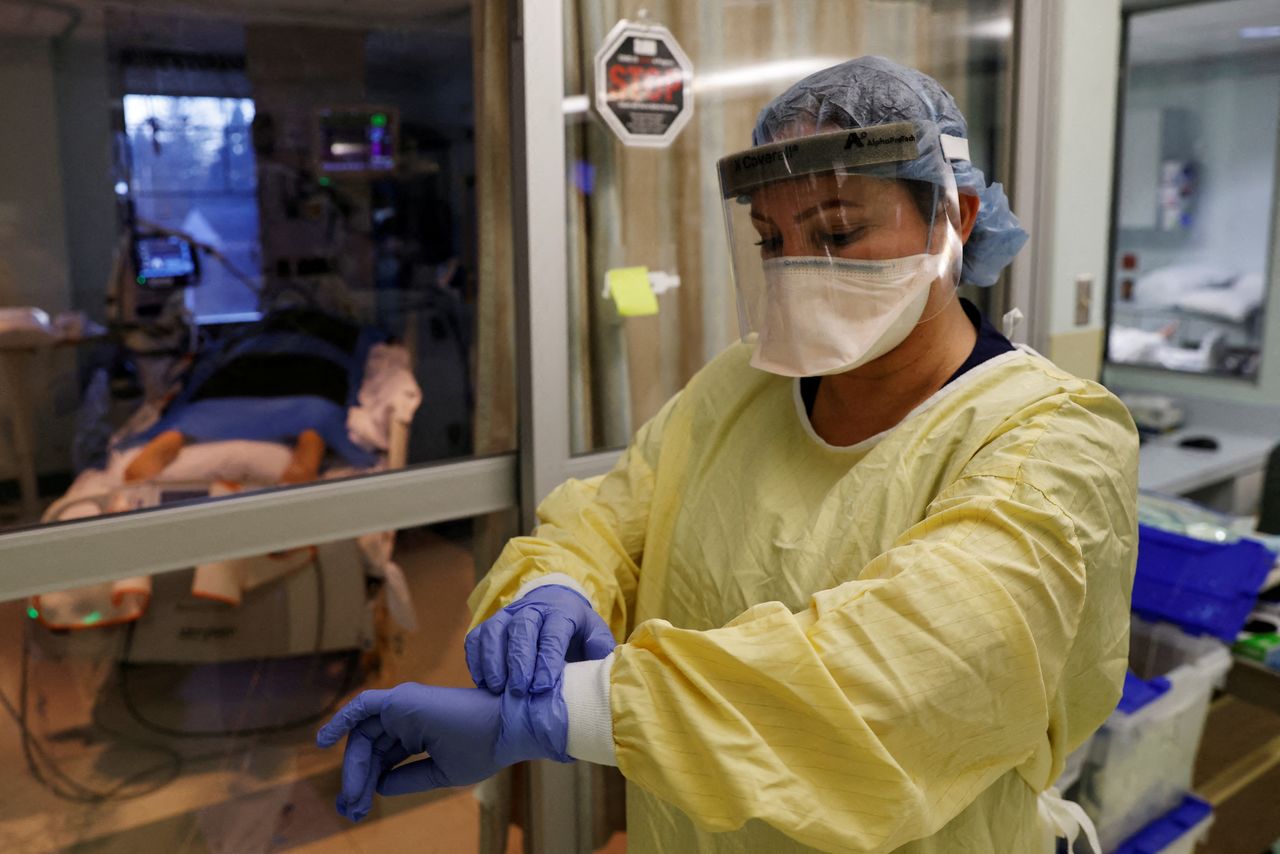
Sabrina Stewart, registered charge nurse of the Intensive Care Unit, prepares to enter the room of a coronavirus disease (COVID-19) patient in their isolation room on the Intensive Care Unit (ICU) at Western Reserve Hospital in Cuyahoga Falls, Ohio, U.S., January 4, 2022. REUTERS/Shannon Stapleton
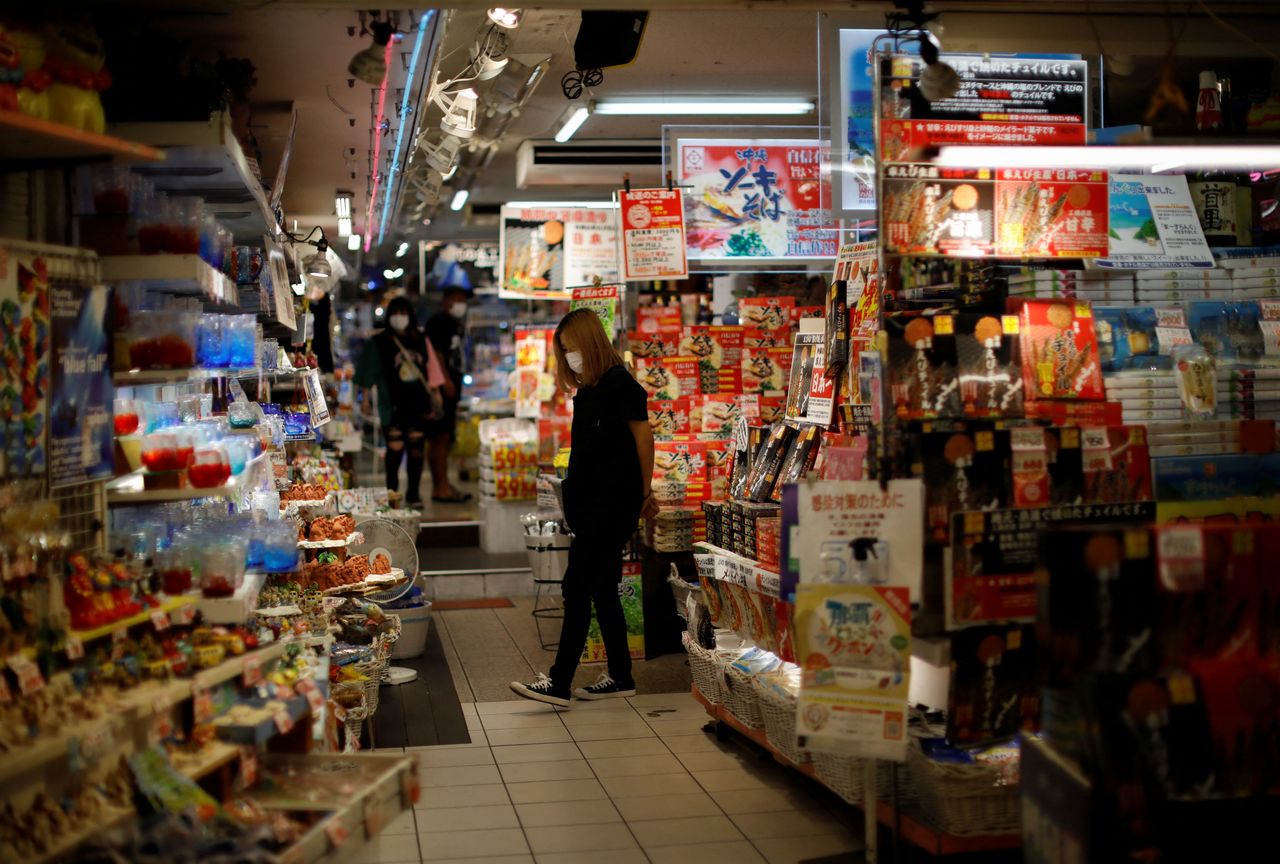
FILE PHOTO: Shoppers wearing protective face masks, amid the coronavirus disease (COVID-19) pandemic, are seen inside a souvenir shop along the Kokusai-dori in the prefectural capital Naha, on the southern island of Okinawa, Okinawa prefecture, Japan, October 24, 2021. REUTERS/Issei Kato
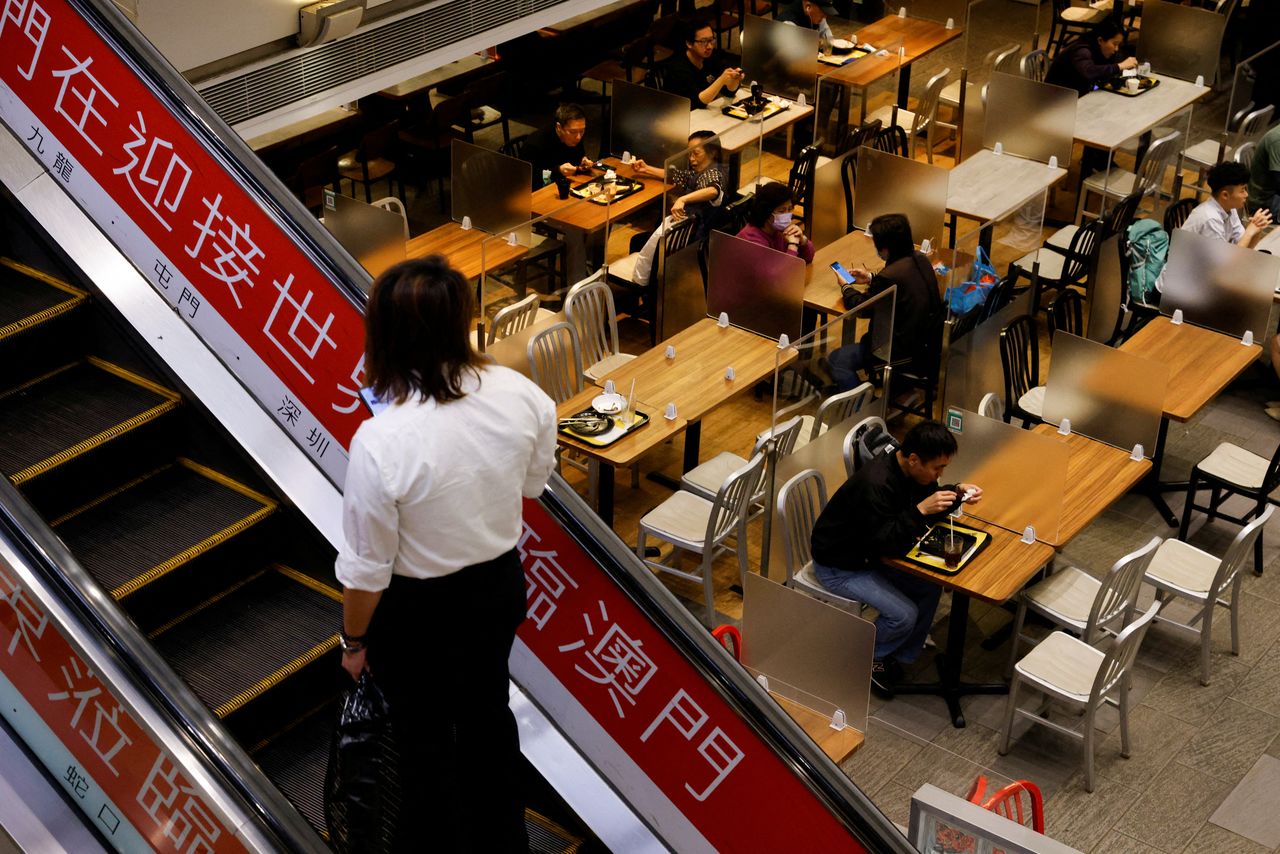
People dine at tables with partition boards inside a restaurant amid the coronavirus disease (COVID-19) pandemic in Hong Kong, China January 5, 2022. REUTERS/Tyrone Siu
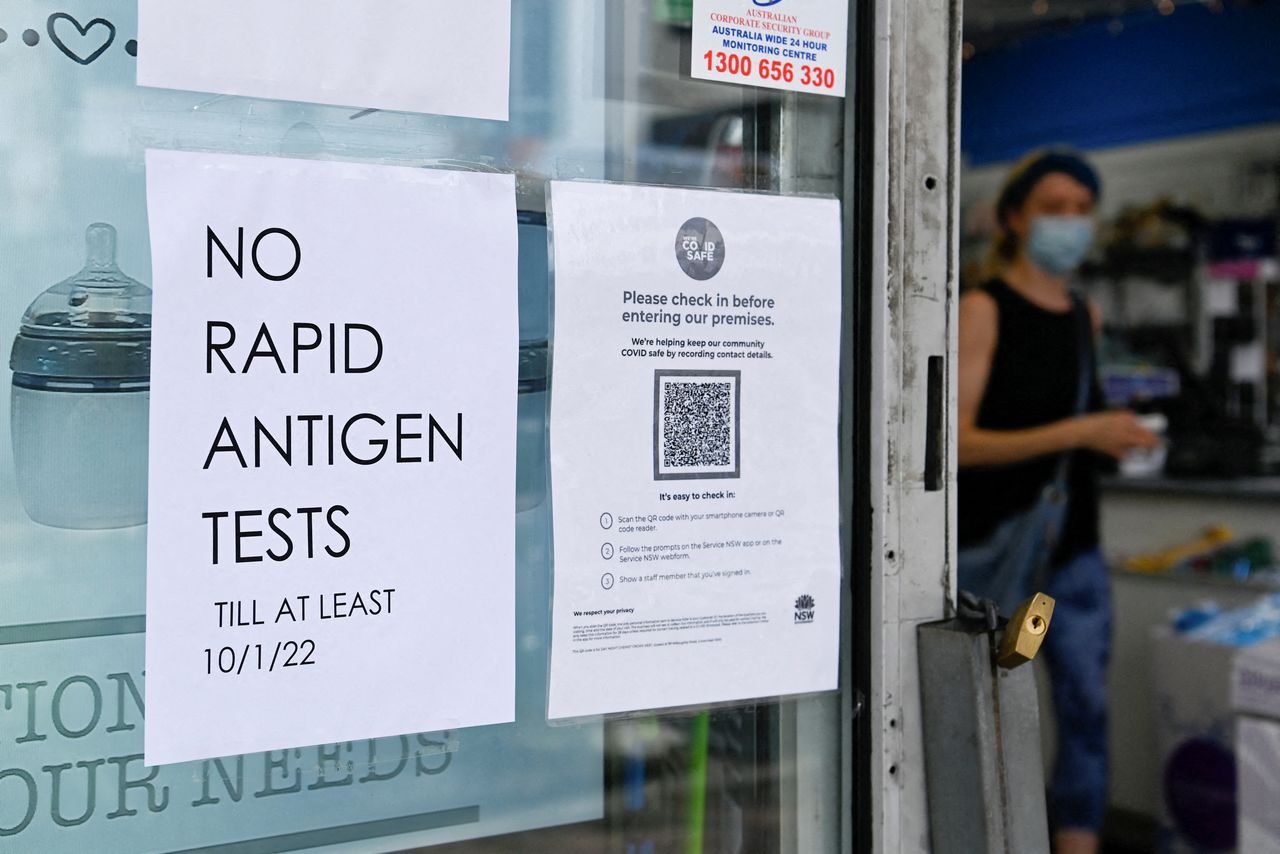
A pharmacy displays a sign to inform customers that Rapid Antigen Test kits are sold out in wake of the coronavirus disease (COVID-19) in Sydney, Australia, January 5, 2022. REUTERS/Jaimi Joy
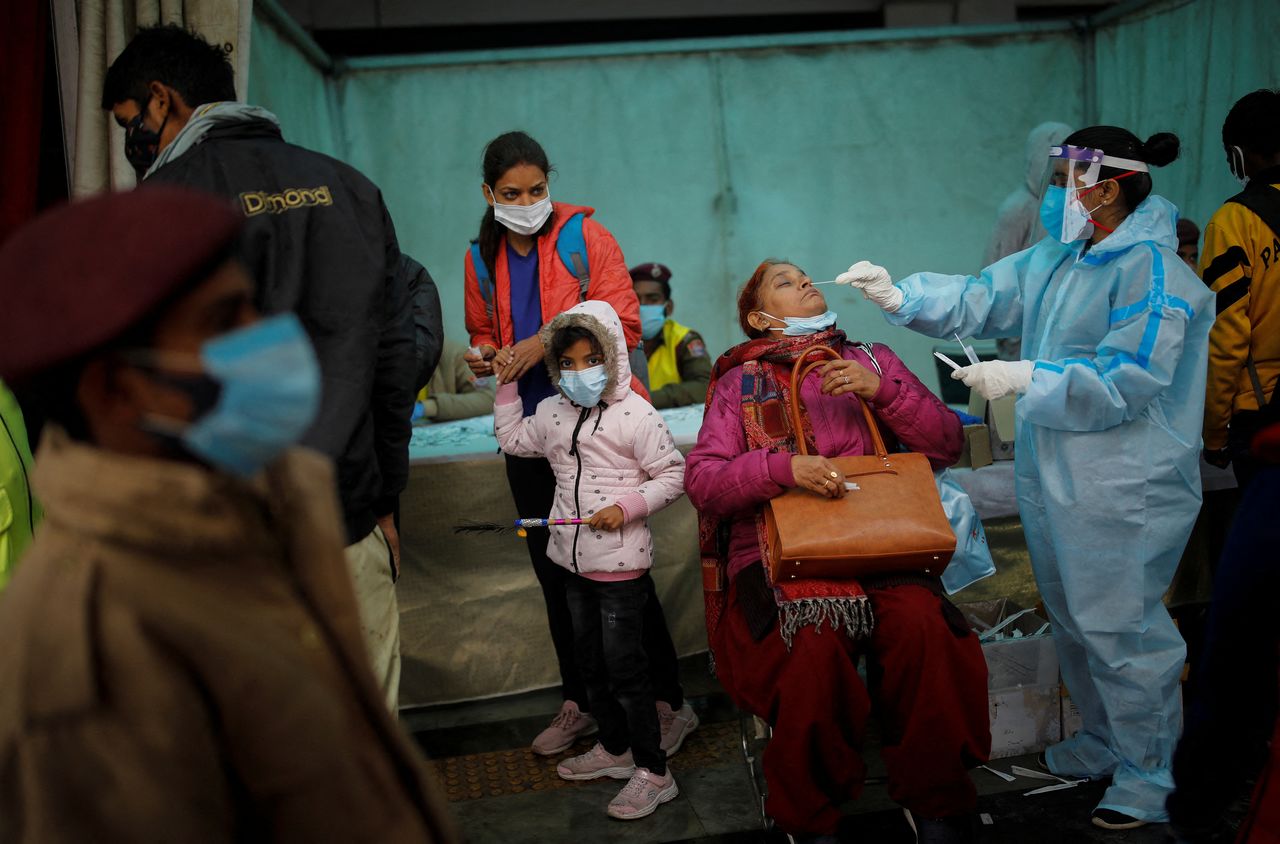
A healthcare worker collects a coronavirus disease (COVID-19) test swab sample from a woman amidst the spread of the disease, at a railway station in New Delhi, India, January 5, 2022. REUTERS/Adnan Abidi
(c) Copyright Thomson Reuters 2022. Click For Restrictions -
https://agency.reuters.com/en/copyright.html
Reuters Japan Health United States France Asia Australia India Europe Hong Kong Singapore US